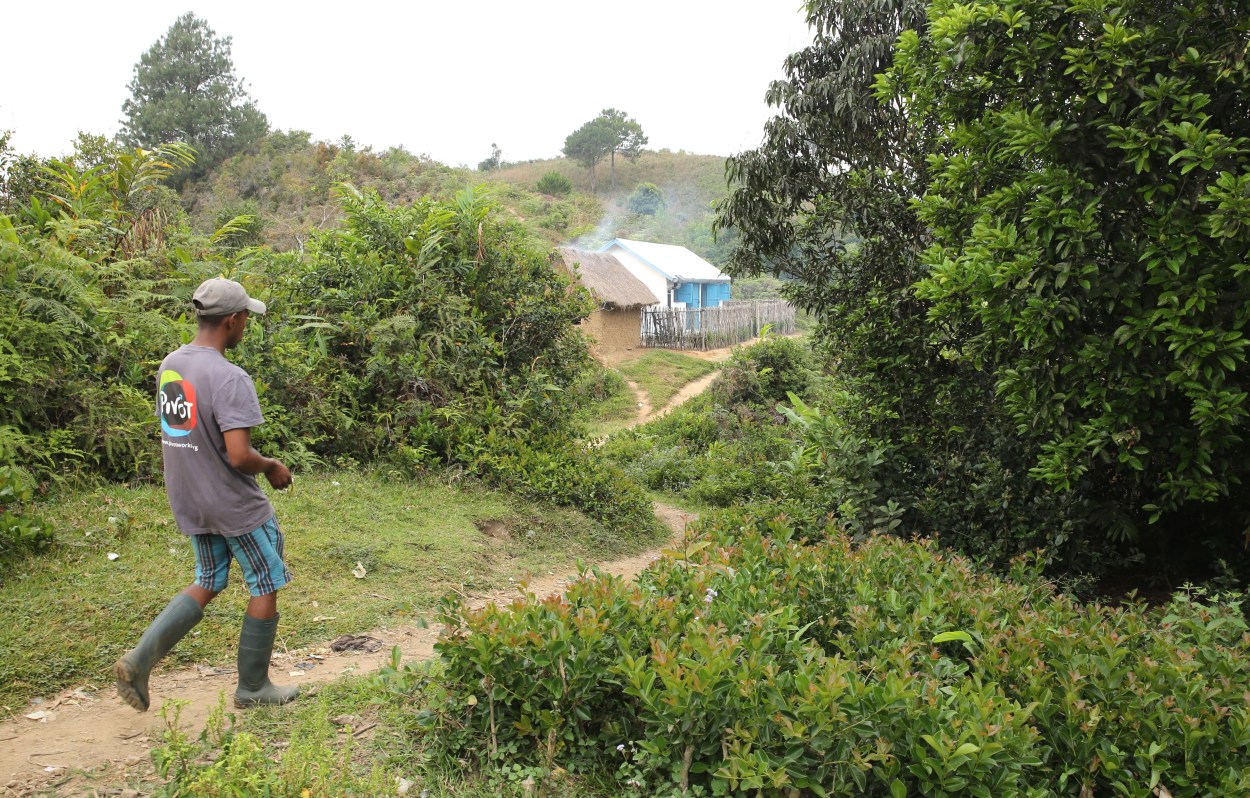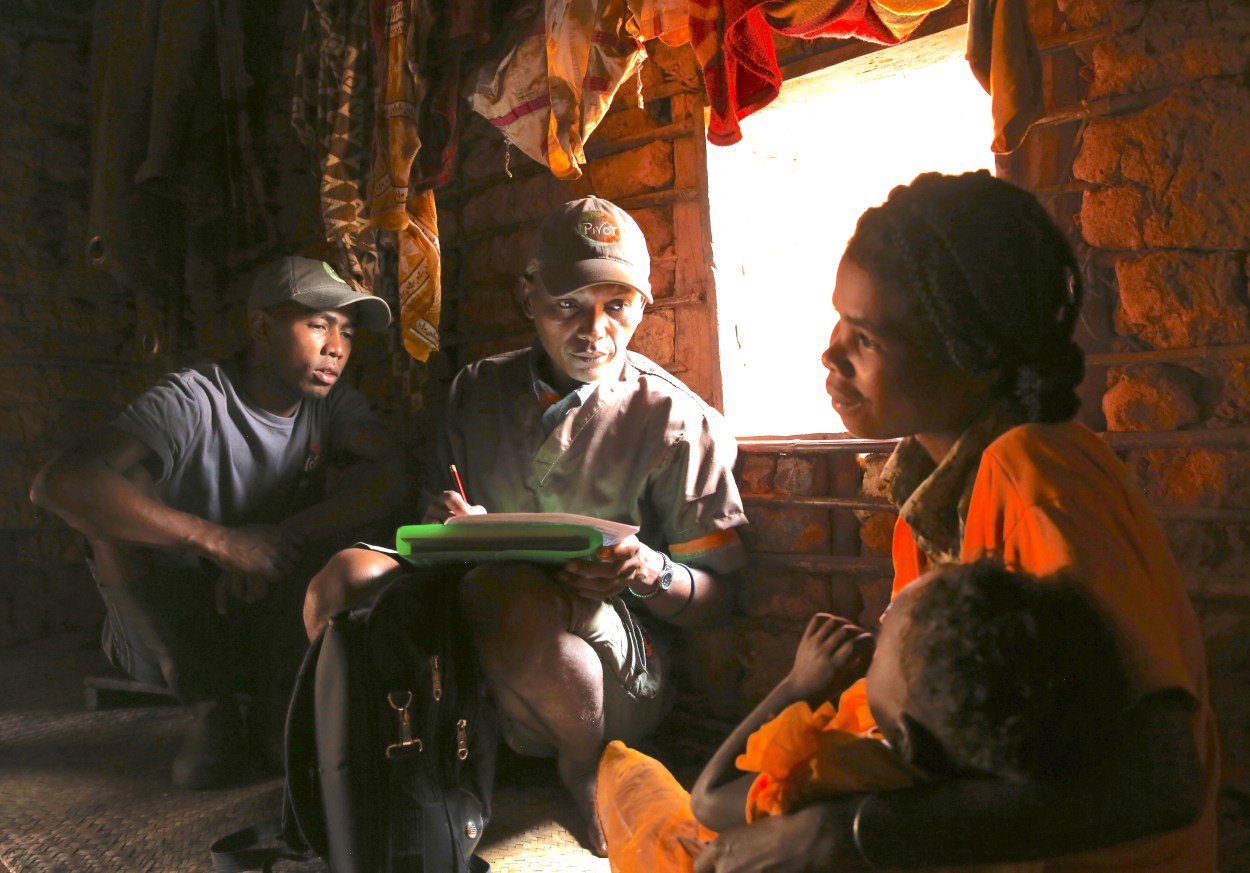19 Feb Impact Update: The First 3 Months Of Our Community Health Pilot
In Ifanadiana District, more than 70% of the population lives more than 3 miles from the nearest health center, which means that most people must walk for hours to access medical care. Community health workers (CHWs) are members of the community who are trained in diagnosis and treatment of common illnesses and provide care where people live, limiting the need to travel long distances to receive primary care services.
PIVOT is a member of the Community Health Impact Coalition (CHIC), which is a network of fellow field-based health organizations that work to catalyze the adoption of high-impact community health systems for rural and poor populations across the globe. Through our participation in CHIC, we work to develop a strong network of professional CHWs who can bring care to Ifanadiana District’s most remote locations.
In October 2020, PIVOT launched a revamped community health pilot program in Ranomafana. The pilot offers a new, two-pronged approach for care delivery in every fokontany (cluster of villages): one CHW remains stationed at a community health site to receive those who come seeking services, while two or more additional CHWs complete a circuit of assigned household visits to proactively identify and provide care. The CHWs attend to sick children under five years of age as well as pregnant women.

PIVOT Community Health Supervisor Berger approaches a community health site for one of his monthly field supervisions of community health workers. Photo by Peter A. Harris for PIVOT.
The pilot program also uses a new approach to management, including the hiring of additional CHWs who have completed a twelve-day training prior to deployment, monthly field-based one-on-one supervision led by a PIVOT nurse or midwife, monthly group supervision at the health center, and a financial incentive for CHWs that is equal to Madagascar’s minimum wage. The program changes, implemented in partnership with Madagascar’s Ministry of Health, are guided by the World Health Organization’s (WHO) guidelines on optimizing community health worker programs, and by the Community Health Worker Assessment and Improvement Matrix (CHW AIM) framework.
Previously covered by 16 CHWs, Ranomafana now has 28, which helps ensure that there is an adequate number of health workers to meet the demand for services and provide care for the commune, particularly its more remote villages. Within this expanded cadre of workers, nearly half of the CHWs in Ranomafana are women, reflecting a substantial improvement in gender diversity in the health workforce.
In the first three months of the pilot project (October-December 2019), CHWs completed 1,444 consultations with sick children, including 630 via proactive household visits and more than 800 visits at the community health site. This is a nearly three-fold increase compared with the three months preceding the start of the pilot, in which Ranomafana’s CHWs completed 526 visits with sick children.

Community health worker Lemiarina conducts a proactive home visit to assess the symptoms of a child with fever, accompanied by PIVOT supervisor Berger. Photo by Peter A. Harris for PIVOT.
It is not enough, however, to increase the number of visits; CHWs must also be able to provide high quality care. To ensure this, PIVOT’s community health supervisors complete a performance checklist while observing each CHW diagnose and treat sick children. The checklist documents if the CHW provides care consistent with a protocol developed by the WHO and UNICEF. In the three months that the pilot project has been active, we have found that quality of care is nearly as high among Ranomafana’s newly-recruited CHWs as those who were already employed; both groups have high rates of correct diagnosis and treatment.
In sum, the first quarter of the new pilot program’s implementation has demonstrated positive results, including increased utilization rates and continued high standards for quality of care. In 2020, PIVOT’s research and clinical teams will focus on understanding the impact of the pilot program on service utilization, patient satisfaction, as well as the impact of continuous supervision on quality of care.
